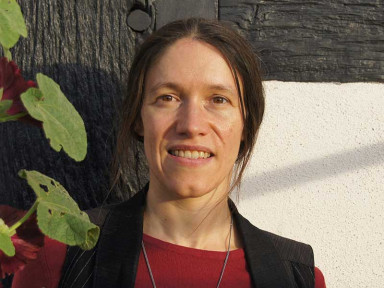03 Jul, 2023, 10:30Lauenburg
Prof. Dr. Franziska Müller (University of Hamburg)
Agency in the Anthropocene

Image © Franziska Müller.
Abstract
Welcome to the Anthropocene! Goodbye to poor Holocene. The times where humankind’s impact on the Earth was negligible, or at least not too interventionist to leave ever-lasting traces, seem gone. Being and living in the Anthropocene thus means that our – at least in a Western sense – relations to nature are shaped by uncertainty, intervention, and fear. This also has repercussions for the ways in which we consider agency, and likewise how we plan urban futures, how we try to secure climate futures that are just, and to what extent we are still able to guarantee the habitability of our ecosystems.
As a gloomy narrative of human apocalypse, the advent of the Anthropocene not only calls for stronger political regulation, but also underlines the need for ecological survival strategies and for a different understanding of ‘the political’. This means we have to move beyond an anthropocentric, white, cis-male understanding of agency: What differences do ‘more-than-man’, ‘more-than-human’, and ‘non-white’ perspectives make for understanding and conceptualizing international relations’ views on the Anthropocene? My lecture touched on these different forms of eco-social critique and zoomed in on questions of agency and transformation. Decolonial, feminist, and post-humanist strands of thought all offer innovative and often unexpected viewpoints. They emphasize a critique of power and domination over nature and call for ecosystemic survival and for the habitability of the planet. With regard to ‘urban future-making’, examples for post-humanist planning and building in the Anthropocene (Ihnji Jon) as well as new forms of climate governance in the Anthropocene (Aysem Mert; Frederic Hanusch) that centre earth-system protection and a more-than-human care perspective may serve as hopeful examples for different forms of agency.
About the lecturer
Franziska Müller (she/they) is is an assistant professor for global climate governance at the University of Hamburg. Franziska heads the research project ‘H2POLITCS’ at the University of Hamburg, where she is also a member of the Climate Cluster of Excellence. Their research covers global climate and energy governance, the political economy of energy, and political ecology, as well as postcolonial and poststructuralist approaches to international relations theories. Franziska volunteers as a liaison officer for the Heinrich Böll Foundation and is active in a decolonial activist group, curating decolonial city walks. She has studied political science, cultural anthropology, and economics in Tübingen, Frankfurt, and Birmingham and held teaching positions in Pretoria, Kassel, and Cape Coast. As a science fiction afficionado she has recently curated a handbook of global politics for the 22nd century. Their upcoming research projects will engage particularly with ecological legal struggles in the Anthropocene.
More information
https://www.wiso.uni-hamburg.de/fachbereich-sowi/professuren/mueller/team/franziska-mueller.html